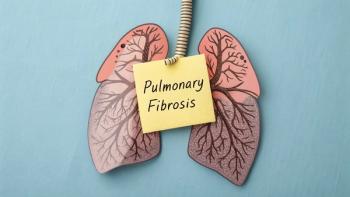
A Conversation With Jennifer Good, President and CEO of Trevi Therapeutics
Chronic cough affects up to 85% of patients with idiopathic pulmonary fibrosis (IPF), a condition that affects about 140,000 individuals in the U.S. Patients may cough as often as 1,500 times daily, which can worsen their condition, increase the risk of disease progression, and diminish their quality of life both socially and psychologically. Unfortunately, there are currently no approved treatments for chronic cough in IPF.
Trevi Therapeutics, Inc., headquartered in New Haven, Connecticut, has recently developed Haduvio (oral nalbuphine ER) as a potential treatment for chronic cough in IPF and refractory chronic cough.
Following the positive results from its Phase 2a RIVER trial in refractory chronic cough, the company is looking forward to its Phase 2b CORAL trial in IPF chronic cough patients in this quarter.
Jennifer Good, president and CEO of Trevi Therapeutics, spoke to MHE about the results and what’s next for the company's products.
What are the next steps you plan to take with the FDA following the positive results of the Phase 2a RIVER trial, and how do you foresee this influencing the timeline for any potential approval?
The results from both RIVER and CORAL studies — along with the positive Phase 2a CANAL trial in IPF chronic cough patients — helps us build a robust profile on Haduvio’s impact on cough reduction. Based on the clinical data and input from the FDA, we plan on initiating a dose-ranging study in refractory chronic cough as well as the pivotal program in IPF chronic cough in the first half of next year if we receive positive results from the CORAL trial
Based on the results observed in the RIVER trial, what long-term efficacy data do you expect to collect in future studies to assess the sustained impact of Haduvio on patients with refractory chronic cough?
The RIVER trial builds upon the positive Phase 2a CANAL trial results we saw in IPF patients with chronic cough. The results from both trials support the rapid speed of effect, broad coverage across cough counts, and large magnitude of effect Haduvio has in patients with chronic cough. We anticipate the primary endpoint will continue to be the change from baseline in 24-hour cough frequency, measured by an objective cough monitor, while also examining additional patient-reported outcomes and other health outcome measures.
Could you elaborate on the safety profile of Haduvio based on the trial findings? How do the reported side effects compare to those seen in other therapies for chronic cough?
Haduvio’s safety profile remained consistent in the RIVER trial and builds on the body of evidence we have with this drug over its development. We have studied Haduvio in over 1,000 subjects to date, across indications, and have built a large safety database with no safety signal.
Other mechanisms in development for refractory chronic cough include P2X3s. This mechanism has typically shown taste disturbance side effects, which we have not observed with Haduvio. In both the RIVER trial and the Phase 2a IPF chronic cough trial, the most frequent side effects were more gastrointestinal and CNS related. In our Phase 2a CANAL trial, observed side effects were typically mild to moderate and transient, resolving within 3-6 days.
Can you share more details about the patient-reported outcomes that were significantly improved during the trial? How do these improvements translate to real-world benefits for patients suffering from chronic cough?
We are thrilled that the patient-reported outcomes (PROs) supported the objective results seen with the cough monitor in our RIVER trial. There were improvements in the cough severity visual analogue scale and patient-reported cough frequency, both of which showed rapid reduction in cough vs. placebo. This is also aligned with measures that the FDA is looking for in how a patient feels, functions, and survives. These were also consistent with the data we saw in our IPF chronic cough trial.
With no approved therapies for refractory chronic cough in the U.S., what strategies does Trevi intend to employ to establish Haduvio in the market once it receives approval?
Based on timing, we expect an approval in patients would follow our lead indication in IPF chronic cough patients and would be filed as an sNDA (supplemental new drug application) to the original NDA in IPF chronic cough. Unlike other investigational therapies in development for refractory chronic cough, the RIVER trial demonstrated Haduvio’s potential to reduce cough across a broad range of cough counts. We see Haduvio as being utilized for treatment failure patients with refractory chronic cough.
What are the design and endpoints for the next phase of clinical trials you plan to initiate for Haduvio? How will these address any limitations observed in the RIVER trial?
We are planning for a future study in refractory chronic cough to properly define the dose range in this indication. We believe following this study we will only be required to do one pivotal study as part of the sNDA filing strategy. For IPF chronic cough, assuming our trial is positive in the second quarter, we are planning on initiating our pivotal studies.
Newsletter
Get the latest industry news, event updates, and more from Managed healthcare Executive.























